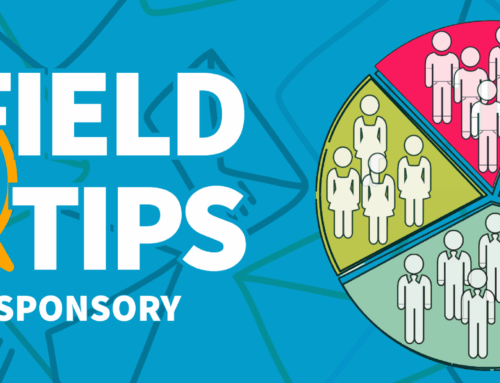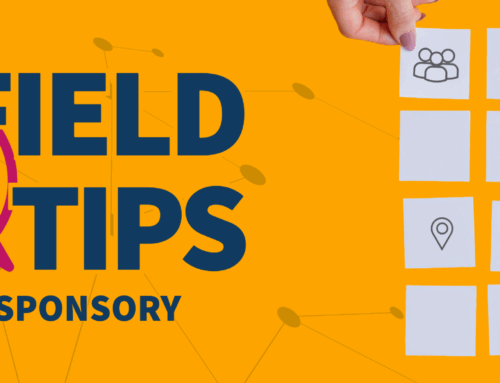Is Data-Driven Marketing Killing Creativity? + Industry News and Insights
Field Tips is a biweekly email series bringing you the latest marketing trends and topics directly to your inbox. Covering everything from digital marketing and social media to content strategy and more, we curate the industry’s top stories and present them as easily digestible insights. The content contained within this post comes directly from our April 30, 2025 issue. If you’d like to receive Field Tips, subscribe to our email or on LinkedIn.
You’ve probably felt it — that creeping sense that marketing’s becoming more spreadsheet than storyboard. With every campaign benchmarked, A/B tested and optimized to death, it’s fair to ask…
Is data-driven marketing killing creativity?
The honest answer: Maybe, but it doesn’t have to. The smartest marketers aren’t choosing sides; they’re blending creativity with performance to build campaigns that connect and convert.
A few ways to do that well:
- Treat Data Like a Compass, Not a Script: Let insights guide your direction, but give your ideas room to evolve.
- Test Bold Ideas, Not Just Safe Ones: Creative risks can unlock unexpected performance wins (and fresh engagement).
- Use Segmentation to Sharpen Storytelling: The better you understand your audience, the more relevant and creative your messaging can be.
When creativity and data work together, you get more than clicks. You get campaigns people remember.
Want to see how that looks in action? Reach out to explore how Responsory can help you bring your next bold idea to life — powered by insights, driven by creativity.
Third-Party Cookies Survive… For Now
WHAT’S HAPPENING. Google has officially scrapped its plan to phase out third-party cookies in Chrome. After years of promising a cookieless future through its Privacy Sandbox initiative, the tech giant announced it will maintain the current approach, allowing users to manage third-party cookie settings via Chrome’s existing privacy controls . This reversal comes amid regulatory scrutiny and industry feedback, signaling a significant shift in Google’s stance on web tracking technologies.
WHY IT MATTERS. This pivot gives digital advertisers more breathing room, but it’s not a permission slip to pause innovation. While Chrome keeps cookies for now, the broader trend toward user privacy and data transparency isn’t going away. Competitors like Safari and Firefox already block third-party cookies, and users are growing savvier about how their data is tracked. The smartest brands will use this time to double down on building direct relationships with their audiences and experimenting with smarter, privacy-friendly targeting tools. Think of this as a stay of execution, not a full pardon.
ChatGPT Ads Are On the Way
WHAT’S HAPPENING. OpenAI is reportedly planning to introduce ads into ChatGPT by 2026, aiming to monetize its vast free user base. Internal projections suggest this “free-user monetization” could generate $1 billion in revenue by 2026, escalating to nearly $25 billion by 2029. This marks a significant shift from CEO Sam Altman’s previous stance against ads, where he expressed concerns about compromising the integrity of AI responses. With ChatGPT boasting around 600 million monthly users, this move could redefine the platform’s user experience and OpenAI’s business model.
WHY IT MATTERS. For marketers, this development opens a new frontier in digital advertising. Integrating ads into ChatGPT could provide unprecedented access to a massive, engaged audience within a conversational AI environment. However, it also raises questions about user trust and the authenticity of AI-generated content. Brands will need to navigate this space carefully, ensuring transparency and relevance to maintain user engagement and trust.
Threads Unlocks Ads for Everyone
WHAT’S HAPPENING. Threads is no longer the quiet new kid on the block—it’s jumping into the big leagues. Meta has officially rolled out ads on Threads to every advertiser worldwide. After dipping its toes with early tests in the U.S. and Japan, Threads is now serving sponsored posts across 30+ countries. These ads will pop up right in users’ feeds, marked with a sleek little “Sponsored” label. With over 320 million monthly users already on board, Meta’s Twitter alternative just became a major ad player.
WHY IT MATTERS. This is a big win for brands looking to tap into a younger, text-loving crowd without reinventing the wheel. If you’re already advertising on Facebook and Instagram, expanding to Threads is practically plug-and-play. Same tools, new eyeballs—and way less ad clutter than the other guys. Plus, Meta’s AI targeting and brand safety features are built right in. If you want in on a fast-growing platform before it gets crowded, Threads is where the action is.
More To Explore
Sam Altman Admits That Saying “Please” and “Thank You” to ChatGPT Is Wasting Millions of Dollars in Computing Power
OpenAI’s Sam Altman says politeness in AI chats costs “tens of millions” in computing power—but it’s worth it to make AI feel more human, despite the growing environmental cost. Read the full story on Futurism.
YouTube Says It Now Hosts More Than 20 Billion Videos, Unveils New Features and Easter Eggs in 20th Birthday Celebration
YouTube hits 20 with 20 trillion uploads and big plans to level up — think AI tools, better creator perks and Emmy dreams. Catch the full birthday breakdown on Variety.
Bot Farms Invade Social Media to Hijack Popular Sentiment
Bot farms are using racks of real smartphones to flood social media with fake buzz, tricking algorithms and shaping what people believe is trending. Get the full breakdown on Fast Company.
LinkedIn Shares Insights Into AI Adoption and Integration
LinkedIn’s latest report shows that AI adoption is booming across industries, especially in B2B sales and small businesses, with many using AI to boost productivity and stay competitive. Dive into the full insights on Social Media Today.
Apple, Meta Fined as EU Presses Ahead With Tech Probes
The EU just slapped Apple with a $570M fine and Meta with $228M for breaking new Big Tech rules—part of its push to rein in digital giants under the Digital Markets Act. Read more on Reuters.
With FDA Changes, Smart Pharma Brands Lean On Specialized Marketing Partners
With government agencies in flux, pharma marketers face more red tape—so savvy brands are teaming up with specialized agencies to stay compliant and creative. Get the full breakdown on Responsory.

About the Author
A prominent marketing strategist and nationally recognized thought leader, Grant A. Johnson is president and CEO of Responsory. He is a sought-after public speaker, direct marketing trainer, copywriter, award-winning author and the creator of Direct Branding℠, Responsory’s method for producing sure-fire measurable results.






